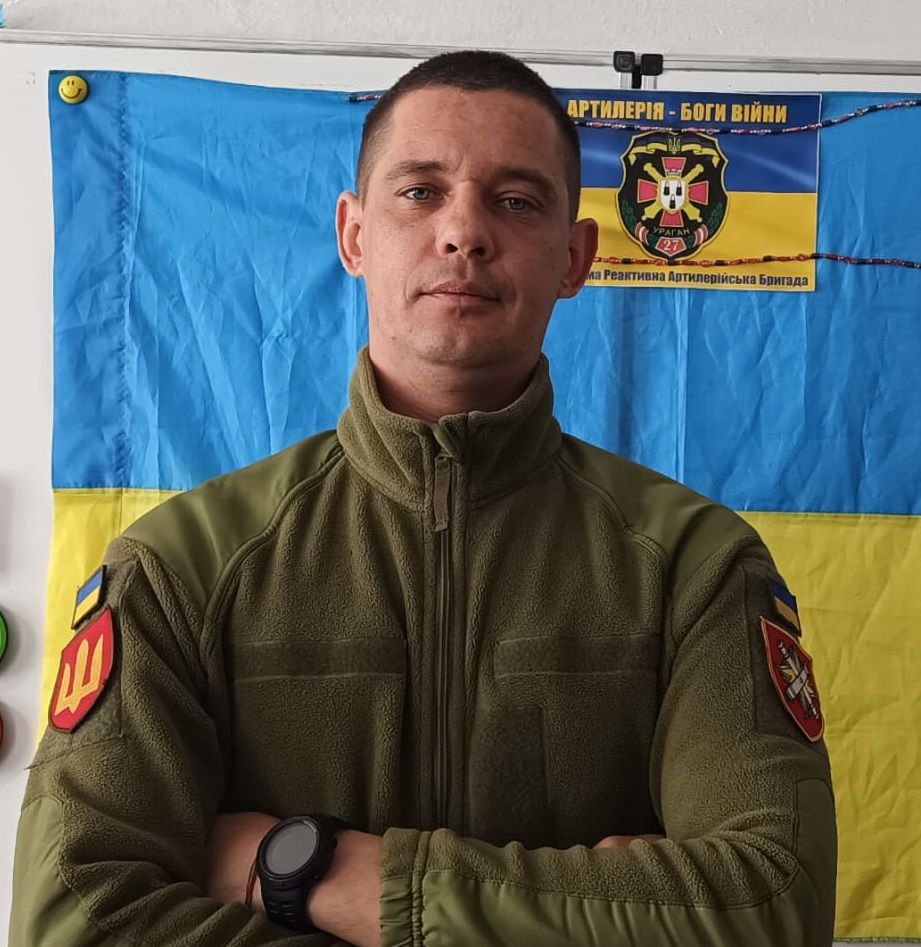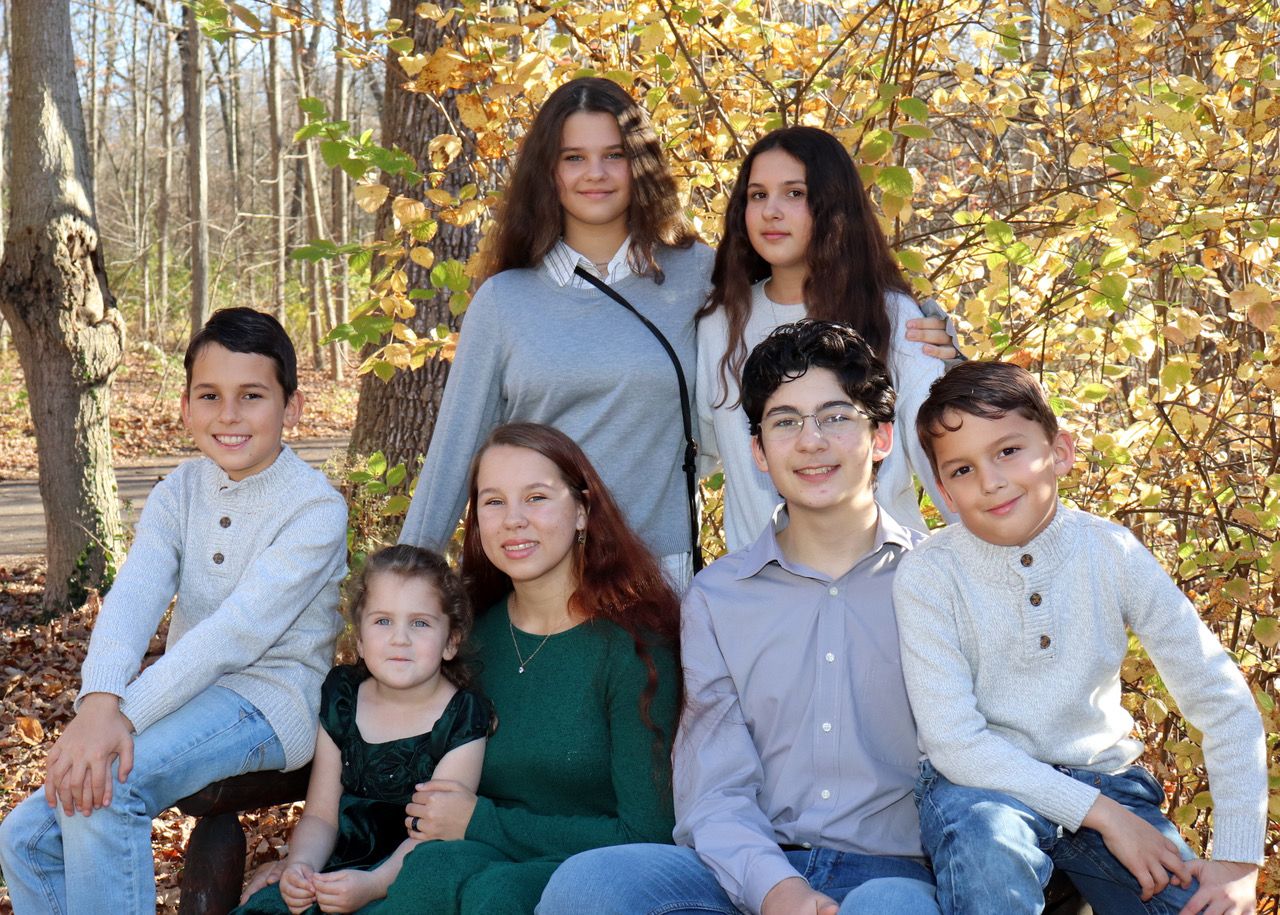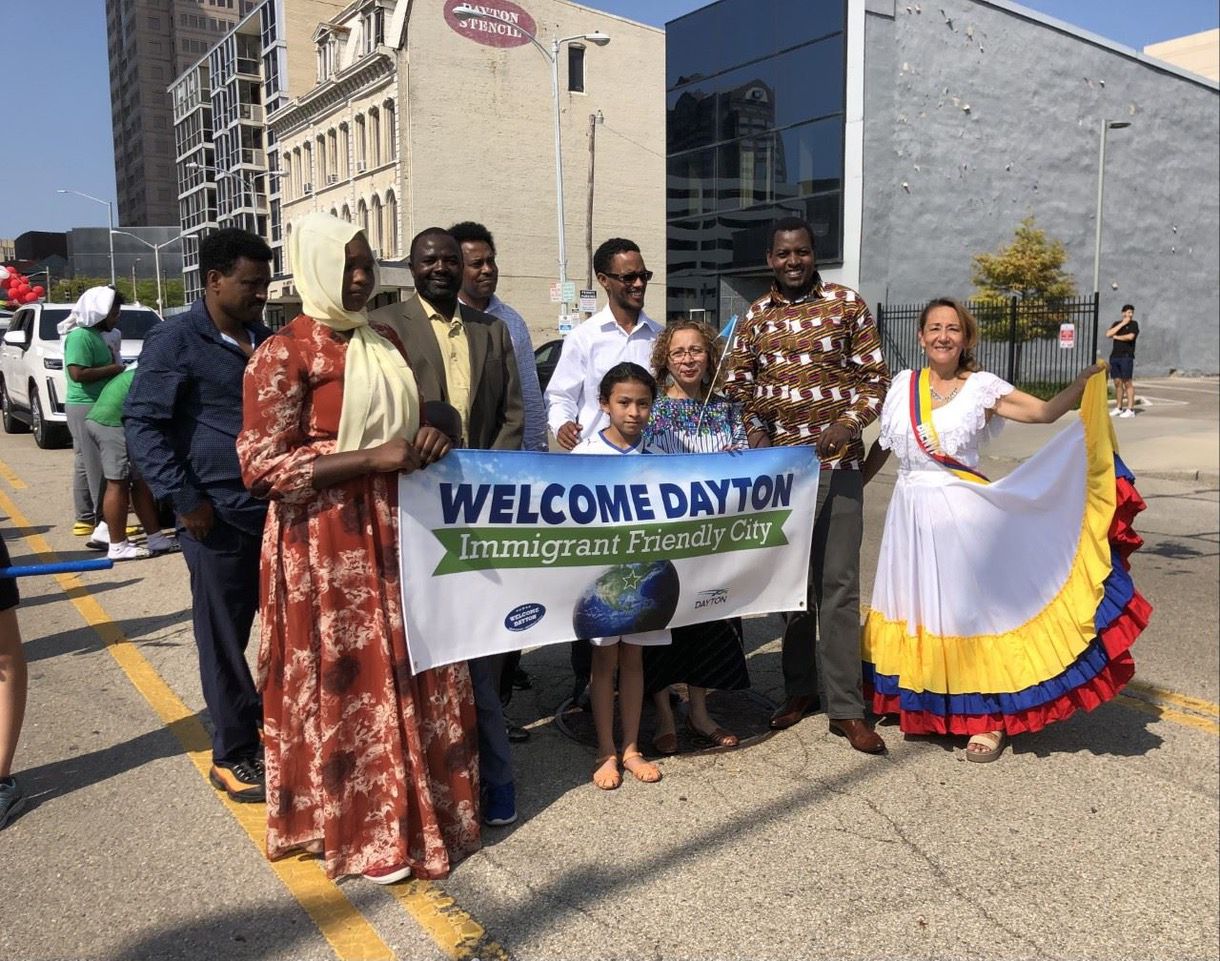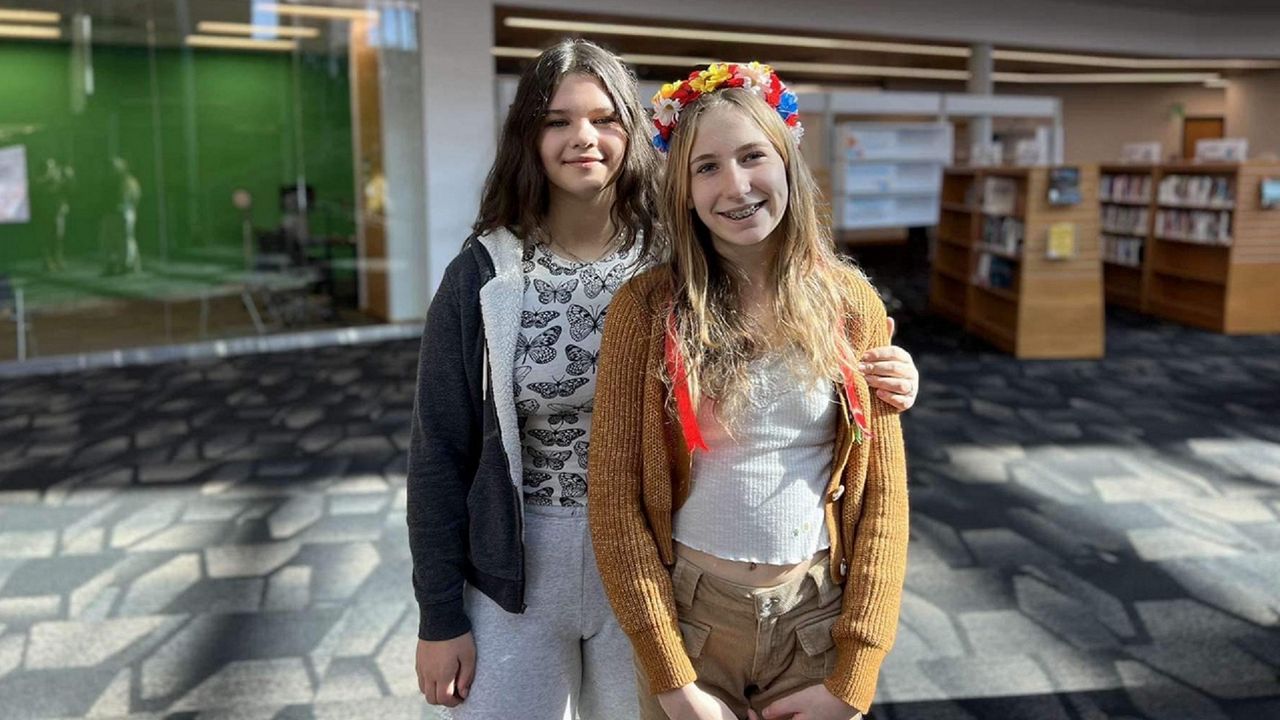DAYTON, Ohio — A program put forward by a slew of greater Dayton service providers is helping dozens of Ukrainian refugees, like 12-year-old Polina Fedenko, feel welcome in their new city.
What You Need To Know
- Welcome Dayton is network of organizations focused on making it easier for refugees and immigrants to relocate to the city
- The organization developed a decade ago as a way to make the city more inclusive and inviting
- Dayton has seen a rise in refugees the past two years from Ukraine and Afghanistan
- Many of the refugees aim to return home, but Dayton leaders are making it known they're welcome to stay if it's their best option
The organization Welcome Dayton hosted an open house last month for Ukrainian re-settlers and sponsor families. The goal was to familiarize them with local service providers and other available resources – and meet their new neighbors.
“It’s just been a great way to connect people and to give people a chance to see what is available here,” said Maryna Braginsky, who sponsored Polina to come from Ukraine and live with her. The Centerville, Ohio, resident is Polina’s aunt.
Polina met a Ukrainian girl around her age during the event, Braginsky said. She noted they’ve become fast friends.
Offering a warm ‘Welcome’ to the Gem City
City Commissioner Matt Joseph, chair of the Welcome Dayton Committee, said about 160 to 170 folks showed up to the downtown branch of the public library for the open house.
“We wanted to fulfill the role that Welcome Dayton has done for years now, and that’s making sure everybody has what they need to make their time in Dayton a successful one,” Joseph said.
Welcome Dayton is a program within the city’s Community Engagement Division. The city joined partners from several sectors — business, health, education, social services — in 2011 to create the program.
The open house featured about a dozen local organizations ranging from city departments and the local school districts to Advocates for Basic Legal Equality (ABLE), a nonprofit law firm offering aid to those facing immigration issues.
Physicians from the Wright State University Boonshoft School of Medicine offered basic health checks and connected individuals with health resources.
“We’ve set Dayton on the course to be a welcoming city. That doesn’t mean just the city itself and the city organization. It means hospitals and schools and organizations within the city,” Joseph said. “We all have to work together to make sure that people have what they need.”
From Sumy, Ukraine to Centerville, Ohio
Polina arrived in Centerville in August, but her trip to get there was far from short. Before being permitted to enter the U.S. legally, the preteen had to spend several months living in other parts of Europe — Poland, Germany and France — waiting to get clearance to relocate to the United States to live with Braginsky, her husband Michael and the couple’s six children.
It wasn’t until the creation of the Uniting for Ukraine program in April 2022 that there became a clear pathway for Ukrainian citizens like Polina to move to the U.S. The program gives refugees a two-year parole period.
Participants must have a supporter in the country who agrees to provide them with financial support for the duration of their stay. The Braginskys agreed to do that for Polina as well as an unrelated married couple.

Adult Ukrainians arriving through the program are eligible for state benefits, including medical, food and cash assistance. Through Catholic Social Services of the Miami Valley, employment and case management services are available through the state sponsored Refugee Support Services Program.
Catholic Social Services has 77 Ukrainian clients active in services, and several additional families currently in the eligibility and screening process for services, according to Mary Reid, the organization’s director of social services.
“It’s very important to do what you can to hide people from the horrors of the war if given the opportunity,” Braginsky said. “It doesn’t mean they’re (going to) stay here, because everyone I know wants to go back after the war to rebuild the country. But at least we can offer people, especially young people, a safe place to live and grow.”
Polina, who’s from Sumy, Ukraine, traveled to Ohio with her mother Yulia. But Yulia made the hard decision to return to Sumy where she runs one of the few grocery stores still in operation, Braginsky said.
Yulia also wanted to go back to take care of her parents and the parents of Braginsky and her brothers. Polina’s father, Igor, is fighting on the front lines alongside Braginsky’s other brother, Vladislav.
Calls between Polina and her father aren’t regular occurrences for a number of factors, including damage to Ukraine’s infrastructure, Braginsky said.
“Her school lets her answer her phone whenever her father calls because every morning she wakes up she doesn’t know for sure if he’s still alive,” Braginsky said.
Not easy to be an immigrant regardless of where you’re coming from
Before taking a job with Welcome Dayton, Jeannette E. Horwitz taught English as a Second Language to students at Wright State University for about 20 years. She was passionate about the subject, given she had immigrated from Sweden to pursue her education.
“Then, it just sort of snowballed from there,” said Horwitz, Welcome Dayton’s coordinator for the past year. “This has become home.”
However, Horwitz still understands that getting used to things like new foods, laws, customs and “new ways of doing things” isn’t a simple thing to do.
“You’re living far away from your family and friends, and you have to adapt to an entirely new way of living,” she added. “Just culturally, adapting to different norms and different values that people have here. It takes some time.”
It was a similar story for the Braginskys who arrived in Centerville in 2007. Michael, who’s Russian, got a job in scientific research at Wright-Patterson Air Force Base.
“It’s a never-ending story,” Braginsky said of adapting to life in the U.S. “It was a totally different culture, an unfamiliar language. Even the traditions are so much different to understand. It’s not a negative thing at all, but it just makes things harder.”
She recalled that it took her 10 years of living stateside to figure out the proper response to “How are you?”

“Instead of answering, ‘I’m fine. Thank you,’ I would think how I actually am this morning? Because if someone were to ask you that in Ukraine, that’d be how’d you respond,” said Braginsky, who grew up in Sumy, Ukraine.
Being able to adapt is important to feeling accepted, Braginsky said. She noted the family has really tried to raise their six children with a firm understanding of American holidays such as Thanksgiving as a way for them to fit in.
Before the recent influx of refugees, Braginsky could probably only name 20 other Ukrainians living in the greater Dayton area.
Both Michael and Maryna Braginsky said the people of greater Dayton have been very welcoming to them. Immediate neighbors, people from several streets over, people they don’t even know stop by regularly to check on Polina and see if there’s anything they can do to assist the Braginsky family.
Michael, who’s “Team Ukraine all the way,” noted the number of Ukrainian flags visible on a drive through Oakwood the other day during a very short drive.
“Nobody is saying, ‘Here’s a new strain on our social services’ or anything like that,” Braginsky said. “People seem very supportive and happy to do what they can to help.”
Polina’s middle school in Centerville City Schools has been very understanding, Braginsky said. They tested her to make sure they put the seventh-grader in the right classes and gave her a tablet so she can translate documents.
“Everybody’s very nice and everybody tries hard to accommodate her needs,” Braginsky added.
Inviting the world to Dayton
In 2017, Welcome Dayton became the first city in the United States to earn “Certified Welcoming” status from the national nonprofit organization, Welcoming America. Through the program, they work with communities to develop a roadmap for policies and approaches meant to support immigrants.
They do so through events, such as a celebration of World Refugee Day in June and a Refugee Employer Roundtable. But because Dayton has had a recent influx of refugees and immigrants from specific countries, they’ve hosted smaller events for specific populations.

They held their first such targeted event in August after 140 residents of Afghanistan relocated to Dayton following the fall of Kabul. Most of that group are in the U.S. on Temporary Protected Status, a special program that allows them to be here for two years and work.
“We created that event to connect them to resources that they might need while they’re here,” Horwitz said. “We knew we were going to do one more of these welcome events this year and focused on Ukrainians once we started seeing people from Ukraine coming here.”
There will be about 175 refugees resettling in the region this fiscal year, Reid believes. She expects most of those resettled in Dayton are Congolese.
Most of them will resettle in Dayton and Montgomery County, Reid said, but recently there’ve been some who chose to resettle in Greene County to be close to family ties.
Reid stressed they want to provide access to basic resources, opportunities for employment, and the foundation of knowledge for life in the U.S. that will empower them to find success and build a life in Dayton should they choose to stay.
“The aim is self-sufficiency,” she added.
While many of the refugees share a desire to return home, Welcome Dayton wants them to know that there’s a place for them in Ohio, Joseph said.
“Whether they decide to go back to Ukraine or end up staying here, that next generation needs to spend their time in Dayton working toward doing great things,” he added.



